|
Angelos Findikakis, Consulting Professor
Dr. Findikakis is a Consulting Professor at Stanford and Senior Principal Engineer with Bechtel, one of the largest engineering, construction, and management firms in the world. He is also a Bechtel Fellow, specializing in numerical simulation and analysis of flow and transport processes. He has provided modeling support to dozens of Bechtel projects from all major business lines. Overall, he has more than thirty years of experience in a broad range of environmental and water resources studies, including both surface and groundwater problems in the United States, Asia, Europe, Africa, and South America. For SEWSS 2016, Dr. Findikakis will be teaching Water Resources Management (CEE 165C, CEE 265C).
 Derek Fong, Senior Research Engineer & Lecturer
Dr. Fong's research in environmental and geophysical fluid dynamics focuses on understanding the fundamental transport and mixing processes in the rivers, estuaries and the coastal ocean. He employs different methods for studying such fluid processes including laboratory experiments, field experiments, and numerical modeling. His current research projects include studying the dispersion of near-bottom plumes in stratified coastal flows, the alongshore transport of freshwater in river plumes, advanced hydrodynamic measurement techniques, coherent structures in nearshore flows, and secondary circulation and mixing in curved channels. He teaches a variety of classes at both the undergraduate and graduate level. Dr. Fong received his BS degree in Civil Engineering and MS degree in Water Resources Engineering from Stanford University, and PhD degree in Physical Oceanography from the Massachusetts Institute of Technology/Woods Hole Oceanographic Institution. For SEWSS 2016, Dr. Fong will be teaching Science & Engineering Problem-Solving with MatLab (CEE 101S, CEE 201S). He will also be co-teaching Foundations of Water Science and Engineering (CEE 73).
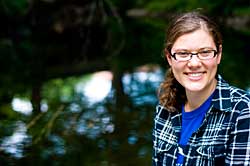
Ms. Grubert is a PhD student in Stanfordís Emmett Interdisciplinary Program in Environment and Resources where she studies the social and environmental lifecycle outcomes of electricity production. She holds an MA in Energy and Earth Resources and an MS in Environmental and Water Resources Engineering, both from The University of Texas at Austin, where she focused on integrated systems modeling for energy and water, and a BS in Atmosphere/Energy Engineering and Mathematics from Stanford. Prior to returning to Stanford for her PhD, Emily worked with large resource extraction companies on strategy, improving operational efficiency, and implementing high hazard industrial safety programs as a consultant with McKinsey & Company. She is a LEED Accredited Professional and has served several times as a teaching assistant for Stanford's major energy course, Energy Resources. For SEWSS 2016, Ms. Grubert will be a major contributor to Energy Resources: Fuels & Tools (CEE 107S, CEE 207S).
Glenn Katz, Lecturer
Mr. Katz is a Lecturer in the Department of Civil & Environmental Engineering at Stanford University specializing in Architectural Design Studio, Building Information Modeling (BIM), and Parametric Design. Also, he has been with AutoDesk since 2011 as an AEC Education Specialist where he conducts technology product training through AutoDesk University. With the Stanford Center for Sustainable Development & Global Competitiveness (CSDGC), Mr. Katz is collaborating on the Sustainable Urban Systems project as well as the Youth Leadership Program. He received his B.S. in Civil Engineering (1981) from MIT, and his M.S. in Civil Engineering (1982) from Stanford University. For SEWSS 2016, Mr. Katz will be teaching Sustainability Design Thinking (CEE 176G, CEE 276G).
Karl Knapp, Consulting Associate Professor
Karl Knapp is the Vice President of Sustainable Energy Education at MAP and a Consulting Associate Professor in the Department of Civil and Environmental Engineering at Stanford, where he co-teaches two energy courses with Jane Woodward. Dr. Knapp is also responsible for MAP's Sustainable Energy Fellowships program, and serves as an advisor to several student organizations and NGOs focused on energy and the environment. Dr. Knapp has over 30 years experience in the renewable energy industry. Prior to joining MAP in March 2008, he was a Senior Resource Planner for City of Palo Alto Utilities, where he was responsible for the City's renewable energy, energy efficiency and climate protection programs. From 1982 to 1994, he developed processes and equipment for manufacturing photovoltaic cells and modules at Arco Solar/Siemens Solar, where he was awarded three U.S. Patents. He holds a BS and MS in Mechanical Engineering, and a PhD in Engineering-Economic Systems and Operations Research, all from Stanford University, and is a LEED Accredited Professional. His doctoral research was inspired by his strong interest in energy and environmental issues in developing countries, studying the economic value derived from flexibility attributes of small-scale distributed energy systems, applied to a case study in India. For SEWSS 2016, Dr. Knapp will be a contributor to Energy Resources: Fuels & Tools (CEE 107S, CEE 207S).
Royal Kopperud, Lecturer
Dr. Kopperud is a Lecturer in the Department of Civil & Environmental Engineering teaching courses in Air Quality Management, Air Pollution, Human Exposure Analysis, and Environmental Science & Technology. He is also the Laboratory Manager of the Stanford Environmental Engineering & Science research laboratory. He received his PhD degree in Environmental Engineering & Science from Stanford University. His research work has been in the area of particulate matter, indoor air quality and impacts on human health. For SEWSS 2016, Dr. Kopperud will be teaching Environmental Science & Technology (CEE 70).
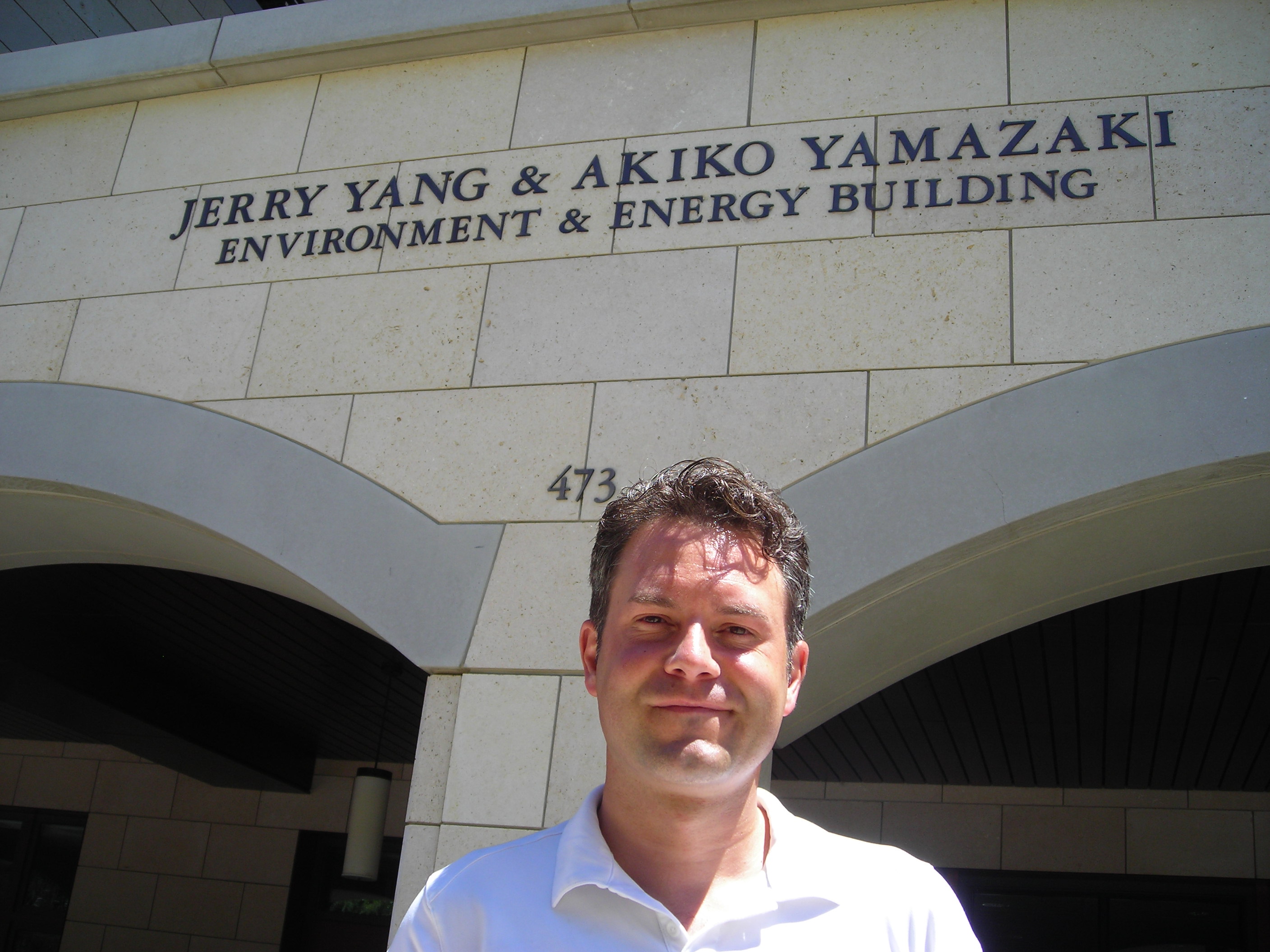 Éloi Laurent, Lecturer
Dr. Laurent is a Senior Economist at OFCE (Sciences-Po Center for Economic Research, Paris, France). He has a background in policy-making as a former aide in the French Parliament and for the French Prime Minister. He presently teaches at Sciences-Po, in the Stanford University Bing Overseas Program in Paris and in the Stanford University Environmental & Water Studies Summer Program. In the Fall of 2013, he was Visiting Scholar and Visiting Professor at Harvard University (Environmental Science and Public Policy concentration). In 2008-2009, he was an assistant to the Stiglitz Commission (Commission on the Measurement of Economic Performance and Social Progress) and currently collaborates with the OECD and the French government to design and disseminate new indicators of well-being and sustainability at the national and territorial level. He holds a PhD in Macroeconomics (highest honors) and a Master's degree from the University of Paris-Dauphine in International Economics and graduated summa cum laude from Sciences-Po (Political Science and Economics). For SEWSS 2016, Dr. Laurent will be teaching New indicators of Well-Being & Sustainability (CEE 171F, CEE 271F).

Mr. Lechner was Vice President of the Energy & Environment program at IBM where he was engaged in energy efficient IT, intelligent buildings, smart urban infrastructure, and optimization of operations for energy, carbon, water, and waste. Here, he was involved with the application of IBM's Traffic Prediction Tool for a Smart Traffic project in Singapore. He also was an Adjunct Professor at the Earth Institute for Environmental Sustainability at Columbia University where he taught courses on cloud, big data and systems of engagement to drive sustainability in the Smarter Cities Skills Initiative program. He received his BS degree in Mathematics-Computer Science from the University of California Los Angeles. For SEWSS 2016, Mr. Lechner will be co-teaching Smart Cities & Communities (CEE 177L, CEE 277L).
Lauren Oakes, Lecturer
Dr. Oakes in an ecologist and human-natural systems scientist. She is currently at Stanford as a Visiting Scholar in Earth Systems and a Research Associate in the Graduate School of Education and the Woods Institute for the Environment. She combines ecological research with methods from the social sciences to examine how people adapt to emerging ecosystem dynamics in a changing climate. She has written for the New York Times Green blog and is currently writing The Canary Tree, a book about finding faith in the ability for humans to cope with climate change impacts. While at Stanford, she received a National Science Graduate Student Research Fellowship and the Lieberman Fellowship. She co-developed and co-taught the Stanford Sophomore College course, In the Age of Anthropocene: Coupled Human and Natural Systems of Southeast Alaska. She received her PhD degree at Stanford in the Emmett Interdisciplinary Program in Environment and Resources (E-IPER). For SEWSS 2016, Dr. Oakes will be teaching Climate Change & Ecosystem Conservation (CEE 173E, CEE 273E).
Allison Pieja, Lecturer
After graduating from the Stanford Environmental Engineering & Science Ph.D. program in 2011, Dr. Pieja went on to co-found Mango Materials, a start-up company in the Bay Area that produces biodegradable plastics from waste methane gas. The concept behind Mango Materials is based largely on her Ph.D. work at Stanford, where she studied selection of methane-utilizing bacteria for production of the biopolymer poly-hydroxyalkanoate. Dr. Pieja currently serves as the Director of Technology at Mango Materials. Prior to coming to Stanford for her graduate work, she graduated from Princeton University with a degree in Civil & Environmental Engineering. Her research interests focus on applied microbiology and chemistry and the use of waste to produce novel products. For SEWSS 2016, Dr. Pieja will be co-teaching Foundations of Water Science and Engineering (CEE 73).
 Martin Reinhard, Research Professor, Emeritus
Prof. Reinhard is Professor (Research) Emeritus in the Department of Civil & Environmental Engineering at Stanford University. He is also currently Visiting Professor in the Department of Civil & Environmental Engineering at the National University of Singapore (NUS). He studies the fate of organic substances in the subsurface environment and develops technologies for the remediation of groundwater contaminated with chlorinated and non-chlorinated hydrocarbon compounds. His research is concerned with mechanistic aspects of chemical and biological transformation reactions in soils, natural waters, and treatment systems. For SEWSS 2016, Dr. Reinhard will be teaching Environmental Engineering Applications of Membrane Technology (CEE 273C).
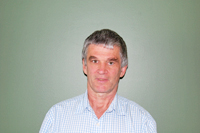 Alexander (Sandy) Robertson, Senior Research Engineer & Lecturer
Dr. Robertson is a Senior Research Engineer and Lecturer in the Environmental Engineering and Science Program at Stanford. He works in the areas of physical chemical processes for water and wastewater treatment as well as aquatic geochemistry. His bachelor’s degree, from Harvard College, is in Engineering and Applied Physics. He did his MS and PhD work in Environmental Engineering and Science at Stanford. He spent two years in Thailand as a Peace Corps volunteer working on village water projects. He has also worked as a consulting engineer in Sacramento, California. At Stanford, his work has included studies related to copper partitioning in soils and groundwaters, photocatalytic oxidation of contaminants, membrane processes, and children’s exposure to pesticides. He has helped develop and run the Clean Water Program and Singapore Stanford Partnership, (graduate education) joint efforts involving the Stanford Environmental and Water Studies group and Singapore’s Nanyang Technological University. For SEWSS 2016, Dr. Robertson will be teaching the seminar course on Issues in Environmental Engineering, Science & Sustainability (CEE 179S, CEE 279S). He will also be co-teaching Foundations of Water Science and Engineering (CEE 73), and a co-instructor for Environmental Entrepreneurship & Innovation (CEE 175S, CEE 275S).
 Bill Shelander, Lecturer
Mr. Shelander encourages the translation of science into viable applications with social and economic impact. Building on experience as an engineer, product manager, venture capitalist, and entrepreneur, he is currently a Commercialization Expert at Lawrence Berkeley National Laboratory. He has invested in or co-founded over 60 start-ups with successful acquisitions and public listings. He has degrees in Systems Engineering, Chemical Engineering, and Business Administration. His work focuses on bridging the transition from scientific research to environmental and economically sustainable commercialization, which often depends on entrepreneurial skills and innovative insights. For SEWSS 2016, Mr. Shelander will be teaching Environmental Entrepreneurship and Innovation (CEE 175S, CEE 275S).
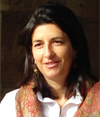 Charlotte Stanton, Lecturer
Dr. Stanton is a Lecturer in Stanford's Environmental Engineering & Science program. She contributes to courses on sustainable development, environmental entrepreneurship, and smart cities. Prior to her PhD, she worked for the United Nations Environment Program (UNEP), based in Nairobi Kenya, where she developed and managed a portfolio of multi-million dollar projects helping governments in Africa, Asia, Eastern Europe, and Latin America to meet their obligations to global environmental treaties. She completed her PhD at Stanford in the Emmett Interdisciplinary Program in Environment and Resources (E-IPER), and received her Master’s degree from the University of Cape Town South Africa and Bachelor’s degree from Princeton University. She is also a member of Stanford Leaders in Communication, teaching research-proven techniques for communicating effectively to diverse audiences. For SEWSS 2016, Dr. Stanton will be teaching Skillful Communication for Sustainability Scientists (CEE 175P, CEE 275P).
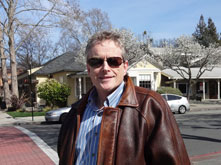 Peter Williams, Lecturer
Dr. Williams is the Chief Technology Officer of IBM’s environmental business incubator, “Big Green Innovations”, and in 2009 had the honor of being appointed an IBM Distinguished Engineer. He has been heavily involved with the creation of IBM’s product and service offerings in greenhouse gas management, water management and the company’s activities in the area of “smarter cities”. By background, he is a management consultant with 25 years’ experience of applying IT to leading edge business and social issues. His PhD degree is in Management (focused on politics) from the University of Bath, England. Dr. Williams started teaching in the Stanford EES program in 2010. For SEWSS 2016, Dr. Williams will be teaching Smart Cities & Communities (CEE 177L, 277L).
James O. Leckie, SEWSS Faculty Director
Prof. Leckie is the C L. Peck, Class of 1906, Professor of Environmental Engineering and Applied Earth Sciences. He has been on the Stanford Environmental Engineering faculty since 1970 and is an environmental chemist interested in the application of chemical principles to the study of pollutants behavior in natural aquatic systems and in engineered processes. His research contributions have been extensive in the areas of adsorption chemistry, human exposure analysis, and membrane science. In 2005, he became a member of the National Academy of Engineering, and received the American Society of Civil Engineering Rudolf Hering Medal in 1981. Presently, he is co-Director of the Singapore-Stanford Partnership program in Environmental Engineering & Science, and Faculty Director of the Center for Sustainable Development & Global Competitiveness at Stanford University. He is also Appointed Chair Professor in the Department of Environmental Science and Engineering at Tsinghua University. Prof. Leckie holds a B.S. degree in Civil Engineering from San José State University (1964), and M.S. (1965) and Ph.D. (1970) degrees in Environmental Sciences from Harvard University.
Colin Ong, SEWSS Executive Director & Advisor
Dr. Ong is a Consulting Associate Professor at Stanford University. He received his BS degree in Chemistry (1985), MS degree in Water Science (1990), and PhD degree in Agricultural & Environmental Chemistry (1992) from the University of California, Davis. In 1990, he was awarded the Joseph G. Prosser Fellowship by the University of California Water Resources Center to study trace element occlusion in field and laboratory evaporative concentration settings. He came to Stanford in 1992 as a postdoctoral scholar to investigate the adsorption of uranyl ions onto mineral surfaces through laboratory experiments and chemical modeling. From 2000 to 2002, he was on the Worldwide Support Specialists team in the Customer Relations and Operations group at Handspring, the leading innovator in handheld devices, where he helped develop and sustain the Visor and Treo product lines. In 2003, he returned to Stanford to lead the resident and distance learning components of the Singapore-Stanford Partnership (SSP) program. Dr. Ong has taught graduate courses on Hydrogeochemical Modeling, Environmental Toxicants, and Environmental Informatics in the Stanford EES program. |